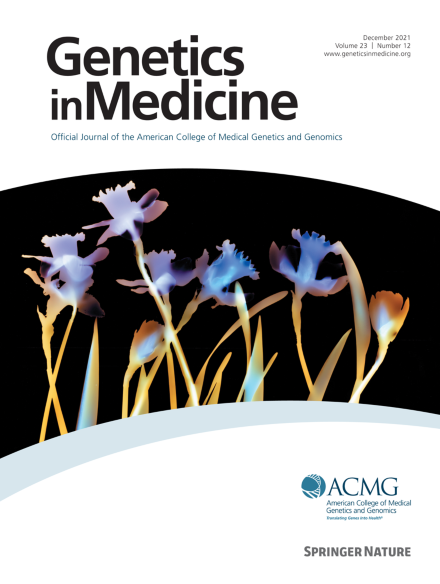支付新兴网络参与者的医疗保健费用:公平和执行方面的挑战。
IF 6.2
1区 医学
Q1 GENETICS & HEREDITY
引用次数: 0
摘要
目的:覆盖研究推荐的医疗费用的复杂性,使个人不因经济原因而限制参与转化研究,很少受到关注。材料和方法:我们探讨了eMERGE网络在实施基因组研究项目时所面临的审议、决定和挑战,该项目推荐基于多基因风险评分定义的高风险结果的临床护理。向eMERGE网站分发了两项调查:确定对特定护理建议付款的偏好(调查一)和了解支付医疗费用的操作流程(调查二)。结果:在资助的研究期间,为接受高风险基因组结果的参与者支付医疗保健费用的最可行方法是支付护理建议的子集。根据需要,每个eMERGE站点都采用了不同的方式来支付医疗费用。讨论:eMERGE研究人员平衡了对偏见、公平、研究设计、法规遵从性和成本的相互竞争的关注,设计了一个统一的方法来覆盖研究中推荐的一些医疗保健费用。在实施过程中遇到了许多挑战。结论:研究结果可以告知研究人员和监管机构,在以预防为重点的转化研究中涵盖医疗保健费用的影响和并发症。本文章由计算机程序翻译,如有差异,请以英文原文为准。
Covering medical care costs for participants in the eMERGE Network: Challenges for equity and implementation
Purpose
To investigate the complexities of covering study-recommended medical care costs for individuals (in order to prevent lack of adherence due to financial reasons), which have received little attention.
Methods
We explored the deliberations, decisions, and challenges faced by the Electronic Medical Records and Genomics (eMERGE) Network during the implementation of a genomic research project recommending clinical care based on high-risk results defined largely by polygenic risk scores. Two surveys were disseminated to eMERGE sites: to identify preferences about payment for specific care recommendations (survey 1) and to understand the operational processes of covering medical care costs (survey 2).
Results
Paying for a subset of care recommendations for the funded study duration was identified as the most feasible approach for covering medical care costs for participants who received high-risk genomic results. Each eMERGE site, by necessity, used diverse approaches to pay for medical care costs.
Conclusion
eMERGE researchers balanced competing concerns about bias, equity, study design, regulatory compliance, and cost in designing a unified approach to cover some of the recommended medical care costs in the study. Many implementation challenges were encountered. Findings can inform researchers and regulatory bodies about the implications and complications of covering medical care costs in translational research studies focused on prevention.
求助全文
通过发布文献求助,成功后即可免费获取论文全文。
去求助
来源期刊

Genetics in Medicine
医学-遗传学
CiteScore
15.20
自引率
6.80%
发文量
857
审稿时长
1.3 weeks
期刊介绍:
Genetics in Medicine (GIM) is the official journal of the American College of Medical Genetics and Genomics. The journal''s mission is to enhance the knowledge, understanding, and practice of medical genetics and genomics through publications in clinical and laboratory genetics and genomics, including ethical, legal, and social issues as well as public health.
GIM encourages research that combats racism, includes diverse populations and is written by authors from diverse and underrepresented backgrounds.
 求助内容:
求助内容: 应助结果提醒方式:
应助结果提醒方式:


